Originally published by SF Weekly 2006-08-09
©2005 New Times, Inc. All rights reserved.
Disturbing the Peace
The local conversation between pro-Israeli and pro-Palestinian activists is getting less civil every day. And Lee Kaplan's tactics aren't helping.
It's the latest salvo in the local edition of the Israeli-Palestinian conflict, an international battle writ small on the Bay Area stage. In the past months, as the percussive explosions in the Middle East echoed throughout the world, San Francisco's advocates on opposing sides have stepped up both their activities and their antagonism. At this July 13 rally — the second in two weeks — the police dispatch the pro-Israeli protesters to the opposite side of the street to keep the peace. The two sides line up against the barricades to glare across the empty road, to chant their slogans and wave their flags at each other.
The Palestinian sympathizers that Kaplan shouts at are a mixed crowd: comprised, as Kaplan puts it, of Palestinians and Arabs, "commies," "dried-up '60s radicals from Berkeley," and college kids playing with "terror chic." But they speak with one voice — and their slogans and chants ring through the downtown corridor. A slender man in a red-and-white kaffiyeh takes a turn at the bullhorn, pausing first to taunt the opposition. "Oh, look at the racists across the street! Israel wants to make peace, yes? After killing 22 in Lebanon this morning — a nice breakfast!" He raises his voice to a harsh scream to start the chant. "Palestine will be free, from the river to the sea!"
Kaplan is in his element. In this town, where "Free Palestine" stickers nestle up against pictures of Che Guevara, he forges ahead, an outnumbered ideological soldier for the Israeli side. The self-appointed watchdog of the Bay Area's pro-Palestinian groups, he has made it his mission in life to disrupt their events, confront their leaders, and reveal them to the world as he sees them. He uses tactics that others call extreme, and he calls necessary: He has infiltrated their conferences and gone in disguise to their training sessions, with tape recorder and hidden camera. When his foes are college students, he calls their deans. When they're Jewish, he contacts their families. Kaplan acknowledges that such tactics won't resolve any conflicts, here or abroad, but he doesn't believe that compromise is possible with the current pro-Palestinian groups. Peace is a goal that glitters far off on the horizon; Kaplan wants to expose to the American public the "war movement" that he believes blocks the way.
There on Montgomery Street, he articulates his worldview: Anyone who shows any sympathy for the Palestinian resistance supports terrorism, and is indirectly responsible for the body parts scattered on the streets of Jerusalem. He points out a man waving an unusual Palestinian flag, with a red fist dripping blood superimposed on the green stripe. This promise of violence, he says, is the truth behind the talk of human rights and liberation that he hears college kids parroting when he brings the fight to quads and student unions. "This is why there will never be peace," he says. "As long as this garbage across the street is spreading their propaganda on college campuses."
You might expect to see this kind of fury in the eyes of a Hezbollah fighter manning a rocket launcher, or anticipate such zealous talk in the kitchen of a West Bank settler's house. The passion that runs through those partisans also animates Kaplan — it's just manifested on a smaller scale. He, too, has abandoned diplomacy for offensive action; he, too, finds many reasons to seek vengeance. On this tidy, downtown street of San Francisco, some find Kaplan's demeanor disconcerting. The pro-Israeli faction is smaller and less vocal than the Palestinian supporters; after Kaplan's bullhorn commentary, a man asks him to tone down his rhetoric and "be nice." Kaplan grudgingly passes the bullhorn, saying, "I'm sorry, but nice doesn't work with these people."
Kaplan leans across the plastic table of an In-N-Out Burger in Walnut Creek and hands over his fake ID. The Rhode Island driver's license shows a dark-haired, brown-skinned man with a bristly mustache, very different in appearance from the gray-haired, clean-shaven white man sitting across the table. This is the ID Kaplan had made in 2004 when he went in disguise to a training session for Palestinian sympathizers.
Kaplan is now notorious for his undercover investigations, but he didn't start out with such dramatic tactics. He was radicalized late in life, after an "eclectic career" that included a stint as a soap opera actor and nearly two decades as the owner of a jewelry business. By the late '80s, he had downsized his operation, and was selling jewelry out of the UC Berkeley campus bookstore. For 14 years, he watched the political currents of campus life, gradually building up a stockpile of indignation.
After selling his business in 2001, Kaplan found himself with some free time and extra money. One spring afternoon, he went up to the Cal campus for Yom HaShoah, or Holocaust Remembrance Day. He planned to participate in the ceremonial reading of victims' names, and was shocked when an organizer respectfully turned him away. She pointed out that he was wearing a jacket with an Israeli flag on the back, and explained that the Hillel Center had decided to separate the remembrance ceremony from support for the state of Israel. "We don't want to upset the Jews for Palestine who are here on the quad," Kaplan remembers her saying.
Across from the noisy Jews for Palestine demonstration, he noticed an outnumbered clutch of students holding flimsy "Support Israel" signs. This handful of students, primarily Russian Jews, would soon gain the benefit of Kaplan's time, money, and dedication. With them, Kaplan formed Dafka, a student group dedicated to counteracting the Palestinian sympathizers on the Cal campus. Kaplan poured his energy into Dafka for several fractious years, until his work came to the attention of the conservative pundit David Horowitz. The two men quickly realized they could work together: Horowitz was starting Students for Academic Freedom, a national network of student groups that would agitate for "ideological balance" on college campuses, and he needed organizers. Kaplan signed on, and was soon writing articles about his experiences on university grounds for Horowitz's online publication, FrontPage Magazine.
Kaplan's first undercover excursion didn't require hair dye or makeup, because his targets didn't yet know his face. In 2003 he attended a conference at Ohio State for pro-Palestinian student activists, masquerading as a reporter from Indy Media, and wrote up a fiery report. Speakers at the conference heaped praise on the freedom fighters of Afghanistan and Iraq, which was tantamount to endorsing Al Qaeda, Kaplan wrote. He also said that he attended a workshop on how to deal with Zionist arguments, in which students discussed how to "dismiss concern over suicide bombings." The article buzzed around right-wing circles, and alerted Palestinian activists to the agent provocateur in their midst.
Kaplan became increasingly focused on the International Solidarity Movement, a loose network of activists who throw themselves in harm's way for the Palestinian cause. They travel to Gaza Strip or West Bank towns — wherever there's likely to be trouble — and act as human shields for Palestinians who may be in danger from the Israeli military. The group became infamous back in 2002, when members joined Yasser Arafat during a siege on his Ramallah compound and bunked with Palestinian militants occupying the Church of the Nativity in Bethlehem.
Kaplan thinks the ISM epitomizes the trouble here at home: The group attracts devoted progressives and idealistic college students through lies and propaganda, he believes. "The ISM says one thing, and does another. They'll say, 'We're peace activists,' but they really support terror. They speak in code. Like, they'll say, 'We're for nonviolence but we recognize the Palestinians' right to resist with military action.' What kind of baloney is that? They're saying, 'It's not our place to tell people not to kill Jews.'"
By the summer of 2004 Kaplan had infiltrated enough conferences and written enough scathing articles to qualify as persona non grata in Palestinian activist circles — but he still felt he hadn't gone deep enough. How did these activists talk about their work when they were sure no one else was listening? When he got word of a planned training session for ISM volunteers in San Francisco, he felt he had to be there. He decided to use his acting skills and professional makeup to transform himself into a Pakistani with a grudge against Israel.
The training session was held at an old storefront theater on Mission Street. Organizers simulated oppressive West Bank conditions by interrogating the potential volunteers on their way in, and by padlocking them inside for the duration of the session. The radical talk at the event, Kaplan says, made him understand the true nature of his opposition. "I really thought what I was going to find was college students being useful idiots, but these are downright evil people," he explains. "These are people who consider themselves subversives; these are people who want to destroy not just Israel — they want to destroy America. They have no compunction about working with murderers and terrorists; they have no compunction about lying."
In Kaplan's fondest dreams, the leaders of the ISM and similar groups will be indicted by the federal government for providing material support to groups that the U.S. State Department has designated as foreign terrorist organizations — like Hamas and the Popular Front for the Liberation of Palestine. But because he has been disappointed by the government's inaction, he does what he can on his own. If his articles prevent college students from being won over by the ISM's rhetoric of "Israeli apartheid," he says, that might help choke off support for those in the occupied territories who seek to "destroy Israel and perpetuate endless war against the West."
The people he encountered at the Mission District training session were running off, Kaplan says, to emulate Rachel Corrie, the young woman from Washington State who traveled to the Gaza Strip with the ISM. When Corrie died during an attempt to stop an Israeli military bulldozer in March 2003, her American passport made it a minor media event, and she promptly became a martyr to American activists in the cause.
Kaplan has obtained footage from an Israeli security camera on the scene, which he says shows that Corrie wasn't protecting a home from demolition, as claimed, but was instead preventing the destruction of a weapons smuggling tunnel. We watch it together in the electronics department of a Walnut Creek Target, as summer shoppers wheel their carts past. "She's standing at the mouth of the tunnel," he says, pointing out that the image shows her low to the ground, as if standing in a ditch. The accounts of Corrie's friends state that she knelt or sat down in front of the bulldozer. But in Kaplan's view, the ponytailed student got what was coming to her. "She was playing chicken with the tractors!" He scoffs at claims that Corrie was a peace activist, insisting that she facilitated terrorism.
Such fervor stems from national security and political concerns, Kaplan insists, stressing that he's not the religious fanatic most people assume him to be. "Twenty minutes in the synagogue is enough for me. I'll go once a year, and that's it," he says. "Actually, what drives me against these people is that I'm fiercely anti-fascist, I'm fiercely anti-totalitarian. And I am against murder and killing and bloodshed by people who would claim to be representing human rights and freedom when they are really representing fascist totalitarianism."
Everything that Kaplan says and writes comes with another side of the story attached, appropriate to the endless argument-counterargument of Middle Eastern politics. Some of Kaplan's targets have published outraged rebuttals, including a vice-president at Duke University, who saw past Kaplan's disguise at a student conference in 2004 and kicked him out. "I have worked with many journalists over the years," wrote the beleaguered administrator in a letter to David Horowitz, "but never have I experienced one whose behavior has been so outside the norms of recognized ethical and journalistic standards as Mr. Kaplan."
Early in Kaplan's rabble-rousing career, some activists believed that no one would take his work seriously: They considered his articles to be minefields of exaggeration, mischaracterization, and quotes taken out of context. As a result, they tried to remain above the fray, disregarding his accusations. But others worried about letting Kaplan define the debate.
"For the first four or five years, people basically just ignored him," says Nadeem Muaddi, a spokesperson for the Palestine Solidarity Movement, a national network of student activists. "It's such an emotional issue that people go to extremes. We're kind of used to that. But he follows this principle that the more he repeats something, the more true it sounds. This past year he got onto the O'Reilly show. It's kind of frightening to see him coming into the mainstream now. When he says these things and we don't refute them, people start to think they're true."
The mainstream Jewish organizations in San Francisco don't seem to embrace Kaplan, and it's not clear what they think about his work and tactics; the local chapters of the Jewish Community Relations Council and the Anti-Defamation League, as well as the Israeli Consulate and San Francisco Hillel, all declined to comment for this article.
They do, however, share some of his concerns about the motives of Palestinian sympathizers. Yitzhak Santis, director of the JCRC's Middle East project, says the vitriol displayed at recent pro-Palestinian rallies has occasionally crossed over into anti-Semitism. Members of the JCRC who speak Arabic recorded a chant, he says, that translates, "Palestine is our homeland, and the Jews are our dogs." At another demonstration, they photographed a man in a kaffiyeh repeatedly giving the Nazi salute. But the larger concern, says Santis, is that the atmosphere of debate has been poisoned by pro-Palestinian groups that take an uncompromising approach. "They don't seek a peace with Israel; they seek peace without Israel," he emphasizes. "They want to fight until one side is left standing — their side — and that approach is a formula for prolonging the conflict." Kaplan sees no reason for compromise, either.
This March, the local conflict found a new venue when two college students at UC Berkeley began Lee Kaplan Watch, a blog that tracks and dissects Kaplan's tactics. The students who started it — Ehud Appel and Yaman Salahi — claim that Kaplan frequently uses fake names to attack them or praise himself on the blog, pointing to the common IP number associated with each entry. They believe he's driven as much by his ego as by his political beliefs, and that he vastly overstates his following and influence.
Appel, who will be a senior next year, is a Jewish member of Students for Justice in Palestine, majoring in Middle Eastern studies. He says he's not worried about the consequences of taking Kaplan on, but professes to be creeped out by his zealotry. "There's something odd about what is fueling him," he says. A few days after Appel posted his first critical piece about Kaplan (and informed him of it via e-mail), Appel checked a Web site dedicated to Kahanism, an aggressive Jewish movement that has been banned in Israel. The American site includes an extensive list of Jewish people it calls "Self-Hating and/or Israel-Threatening" — a SHIT list. Appel found a recent, lengthy write-up on himself, which included his photo and e-mail address and called him a "boot-licking kike," among other slurs.
Appel believes that Kaplan either wrote the entry or submitted Appel's name to those who run the SHIT list, a charge that Kaplan refutes. However, Kaplan does admit that he posted a nearly identical write-up in the "rogues' gallery" on one of his own Web sites, StopTheISM.com, soon after Lee Kaplan Watch launched. Only a few words were different: "Kike" became "kapo," and a coda was added at the end: "If anyone reading this Web site knows any members of Ehud Moshe Appel's family in Israel, we would like to talk to them and find out what they think of a guy who works for the likes of Hamas that declares no Jews may live anywhere in Israel at all and that it is OK to kill them."
"Lee Kaplan has designated himself as our persecutor," says a resigned Paul Larudee. This polite and soft-spoken man, nearing 60, is one of the most active campaigners with the Northern California chapter of the ISM; he's also the prime example of Kaplan's effectiveness. Larudee recently spent 14 days in an Israeli detention center, and believes that Kaplan's work was largely responsible for his lockup. Kaplan agrees.
Larudee has been visiting the occupied territories for 40 years, and has become more politically engaged over the last five. Kaplan spoke with him while arranging to take part in the ISM training session in 2004, and Larudee earned a spot in Kaplan's resulting article and in his online "rogues' gallery."
This June, Larudee set out for Gaza with a dual purpose. Acting as a professional piano technician, he would tune Palestinians' pianos, while as a professional activist he would organize ISM volunteers who showed up for "Freedom Summer 2006" (for the past few years, the ISM has called on activists to use their vacation time for the Palestinian cause). Larudee had about 20 piano-tuning appointments waiting for him at Gaza's cultural centers and schools, but that wasn't a good enough story for the Israeli customs officials, he explains. They interrogated him for hours, inquiring about allegations that Larudee recognized from Kaplan's articles, and then announced that he would not be allowed to enter Israel. He spent 10 days waiting to appeal the decision, but on his day in court the judge reviewed what the prosecution called "secret evidence" in her chambers. Several days later, she declared him a danger to the country. He was on a plane to Jordan that night.
At the end of the detention diary Larudee kept (and later posted online), he makes an unexpected gesture: He wryly thanks Lee Kaplan for his "tireless work." In a phone interview shortly after his return to the United States and before an impromptu trip to Lebanon, he explains that several newspapers printed his Op-Eds during his ordeal. "He really did result in me being able to publish things that otherwise I would not have been able to publish, and it may result in a book, indirectly," he says. "In a way, it's like the head of MGM once said: There's no such thing as bad publicity."
Yet Larudee does acknowledge that Kaplan's scrutiny has changed the way the ISM works in the U.S. "We started out being a very open kind of organization," he says. "We're not a danger to anybody, and what we're doing is the same kind of things that the civil rights movement used to do in this country. This is not a secret terrorist organization." Now, if activists use their full names at conferences or in mass e-mails, they worry they'll end up on the watch list in an Israeli customs computer. After Larudee was featured in Kaplan's writing, he legally changed his last name and got a new passport, which got him into Israel several times. He suspects he got stopped this time because Kaplan found out about the name change, and passed the information on to Israeli officials.
Kaplan links nearly all of his foes to the ISM, and considers it his trump card. He insists that ISM volunteers directly support Hamas and other militant groups when they're in the occupied territories. Larudee admits that there have been some unintended connections in the past. In 2003, two Muslim men from Britain stopped by an ISM activists' office in Gaza, where they briefly talked politics, shared tea, and asked to see the place where Rachel Corrie was killed. About a week later, the two men carried out a suicide bombing at a bar in Tel Aviv.
Larudee says there's no indication that the ISM volunteers had any idea of the two men's intentions. But there are a lot of things they don't know about the Palestinians they meet and work with from day to day. When Larudee was interrogated by the Israeli security agents at the airport, they asked if he had ever had contact with people from Hamas. "I said, 'Probably. I wouldn't be at all surprised if people I know are members of Hamas,'" he explains. "'I don't ask these questions.'"
Both Kaplan and the pro-Palestinian groups had been eagerly anticipating the Al-Awda convention in mid-July at San Francisco State University. Al-Awda, also known as the Palestine Right to Return Coalition, takes as its founding principle that all Palestinian refugees and their descendents have the right to return to the land they lived on before the creation of Israel in 1948. To supporters of Israel, this is an extremist position that amounts to a call for the country's destruction, because the roughly 5 million Palestinian refugees would outnumber Jewish Israelis, and bring about a radically altered state. As Kaplan said, "Then they could even vote the Jews out of existence!"
Kaplan's expectations were high for what he called the "anti-Israel hate fest." He made his views of the event known, says conference organizer Ramsey Al-Qare, of the General Union of Palestine Students. The group had originally planned to hold the event in an academic building, but the administration got spooked when Kaplan called the dean and published an article accusing the university of using Californians' tax dollars to support terrorist organizations. The group decided to use the student union building instead, because its operations are funded entirely by student fees.
When the foggy Friday night finally arrived, about 100 people filed into a banquet hall and arranged themselves around the tables. Even before the first speaker took the podium, Kaplan had attracted attention. A scrum of conference organizers — identifiable by the bright red sashes tied around their biceps — surrounded his table. They wanted to know if he was there as a journalist, and, if so, who he was writing for. They asked to see ID. Kaplan refused. He was a freelance journalist, he said, but he was also a private citizen who had every right to be there. The two gray-haired women who had sat down at his table picked up their paper plates and fled. "We wound up with the Zionist!" they exclaimed with giddy horror.
The speakers that night talked about the right of return as a basic human right, and dismissed the notion of a two-state solution. They told listeners to keep sight of the goal: establishing a Palestinian state that would offer shelter to all the scattered descendents of the refugees. A dark-haired woman from Al-Awda's New York chapter gave the most rousing talk, and also the most incendiary. "Al-Awda was born of the knowledge that there is no place for Zionism in the Arab world," she said. "This is resistance. This is solidarity. ... This is the bomb on the Israeli barge." She left the stage amid rousing cheers.
The next morning started where the previous evening left off. Organizers accused Kaplan of secretly taking pictures — a violation of the conference rules, posted everywhere, which forbid all recording devices and cameras. Al-Qare, a student in his junior year, said the ban on recording was a direct result of the prior actions of Kaplan and his colleagues. "I've had friends who have gone to Palestine-Israel, and when their names are run through the computer at immigration a picture will come up from Malcolm X Plaza at San Francisco State," he said. "How the hell does Israel have pictures of us on our campus?"
Later that day, about two dozen activists gathered for the workshop on student organizing on college campuses. Appel, the Berkeley student who works on Lee Kaplan Watch and one of the workshop's leaders, wasn't surprised when Kaplan strode into the room. Appel keeps a sense of humor about Kaplan's watchfulness: "At least I get to tell people that my archnemesis was on the O'Reilly show," he says. "His archnemesis is just some 21-year-old guy."
At the workshop, Appel and Al-Qare described their campus organizing work in minute detail. Then Appel told a story about an anti-war demonstration in the spring at which the pro-Palestinian contingent was joined by a few strangers waving Palestinian flags — and signs advertising a neo-Nazi Web site. "We need to smash these people and prevent them from infiltrating our group," he said fiercely. When the student organizers finished talking and opened the room to questions, Kaplan's hand shot high in the air. Appel reluctantly recognized him.
"Ehud, you were talking about your objection to Nazism, which sounds like a good thing," Kaplan said. "But I've recently shown that Al-Awda has links to the National Socialist Movement, which is the Nazi party." Kaplan ran through his allegations: A neo-Nazi Web site linked to a Web page calling for the boycott of companies that do business with Israel, a page from a Web site that Kaplan said was registered to the founder of Al-Awda. "If you're serious about your objection to Nazism in your movement, you might want to look into that. Al-Awda was notified about this weeks before this conference," Kaplan declared.
As he spoke, a clamor of voices grew. Then Appel leapt to his feet and dramatically pointed to Kaplan. "You are using guilt by association!" he shouted, and would have gone on, but a conference organizer burst into the room to restore order.
"We won't have debate!" said the organizer. "Each person can ask one question, based on the presentation, and they will get one answer."
Kaplan looked up, unfazed. "OK, here's my question for Ehud. Have you read the Hamas charter?"
The tumult of voices began again. Someone shouted: "Lee Kaplan, you're a racist!" Others yelled, "Next question! Next question!"
Kaplan got no answer, and the workshop leaders tried to go back to the topics at hand, such as how to use MySpace as an organizing tool. But the room vibrated with energy, all of it centered around the hulking interloper. Twice more Kaplan interjected comments, and twice more the group drowned him out in a wave of collective antagonism. A few fresh-faced college students asked questions about how to deal with "disruptive people" who are "obnoxious and annoying," while pointedly averting their eyes from Kaplan. He stayed silent.
It seemed like the workshop might come to a close without further incident. Suddenly, a new uproar erupted by the doorway. "He used a camera!" shouted one of the organizers, pointing to Kaplan, who was holding a chunky pen. "It has a lens; he took a picture!"
Everyone turned on Kaplan, who protested, "It's a computer pen! It's a computer pen!"
A few organizers leaned in around him, apparently demanding that he turn the questionable object over.
"Kiss my ass," Kaplan replied.
Unwilling to wrest the pen from his hands, Al-Qare took the high road, announcing that the police would investigate. The session broke up as several activists ran to the student lounge to find the cops.
In the lounge, a flat-screen TV tuned to CNN showed images of rubble in the streets of Beirut, and posted the phone numbers that Americans in Lebanon could call to arrange for evacuation by sea. An Israeli missile had hit a civilian convoy, the station reported, killing 23 people who were evacuating their village. Hezbollah forces had launched a barrage of Katyusha rockets that fell on the Israeli city of Tiberius. And there was no word of the kidnapped Israeli soldiers.
Meanwhile, Kaplan retreated down the hallway and headed for the exit. He had discomfited nearly everyone at the conference, and thoroughly derailed the proceedings of the student workshop. He had photos of activists that he could add to his "rogues' gallery," and he had material for his next article. It was a good day's work.







BlogMaster's Note: We need more Jews with the guts to stand and fight. Yasher Koach Lee!!!

















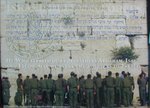

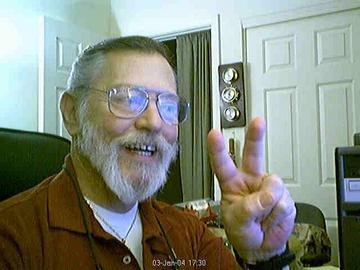






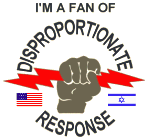
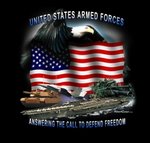




 While doing IDF (Israel Defence Forces) reserve duty on a mountain overlooking the
While doing IDF (Israel Defence Forces) reserve duty on a mountain overlooking the 

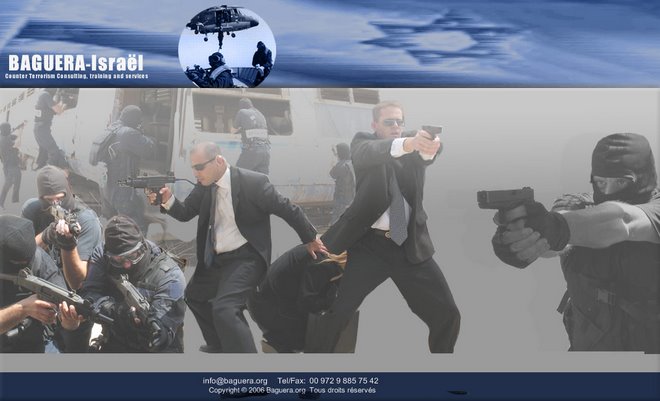



No comments:
Post a Comment